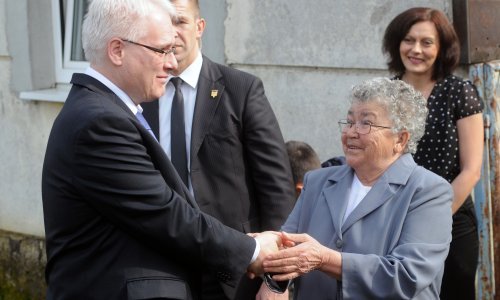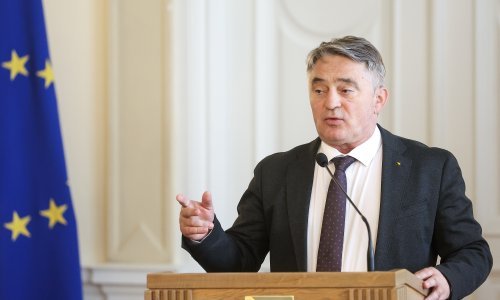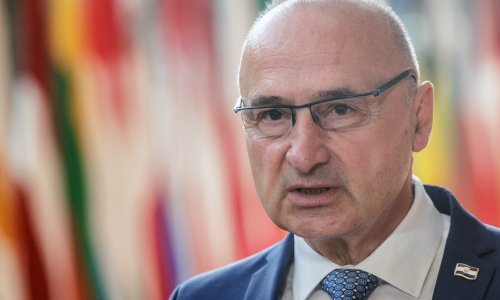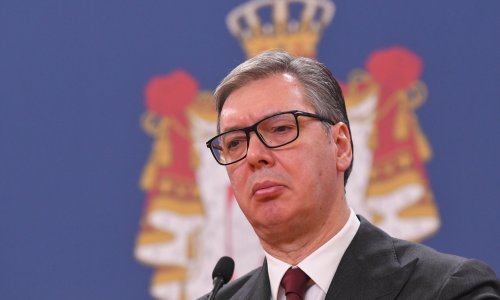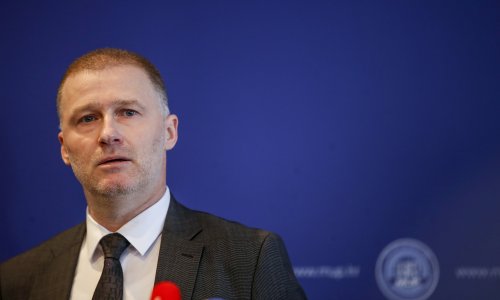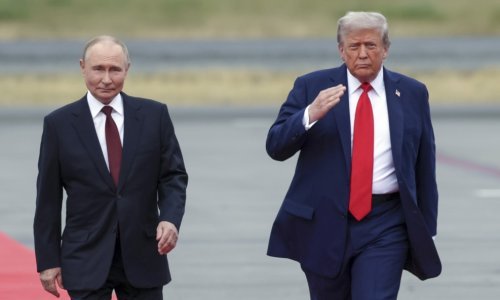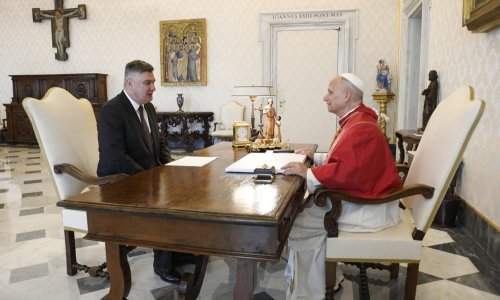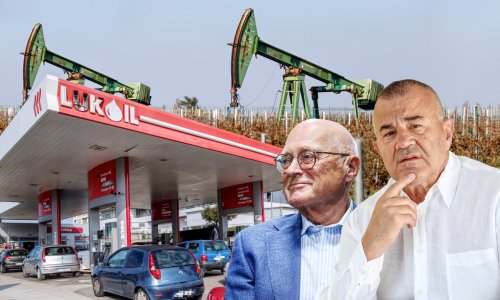Croatian President Ivo Josipovic, his Serbian counterpart Boris Tadic and members of the Bosnian Presidency, headed by Chairman Zeljko Komsic, held an informal meeting on the northern Croatian Adriatic archipelago of Brijuni on Monday to discuss the situation in the region and Euro-Atlantic integration processes.
Addressing a joint press conference after the meeting, they expressed their determination to pursue the policy of post-war reconciliation and continue dealing with remaining outstanding issues as a result of the break-up of the Yugoslav federation. They said they supported efforts by their governments to establish cooperation and deal with problems through negotiation, in the spirit of good neighbourly relations.
The meeting particularly focused on cooperation in security and judicial affairs. The presidents welcomed all the agreements reached by government ministries and prosecutor's offices, particularly agreements on the mutual enforcement of court decisions in criminal matters and agreements on extradition, as well as the improving cooperation between police forces and prosecutor's offices in pre-investigation procedures.
Josipovic said that it was a very beneficial meeting, although "it perhaps took too long to happen considering the interdependence of the three countries which are connected by many facts." He added that they therefore agreed to meet at least once a year, because such meetings "are important not just for these three countries, but for the entire region as well."
The members of the Bosnian Presidency and the presidents of Croatia and Serbia particularly discussed the future of the countries in the region as full members of the European Union.
"The completion of Croatia's accession negotiations is proof of the credibility and vitality of the enlargement policy and a strong signal to the countries in the region to continue reforms and adjustment to EU standards," the meeting concluded. Croatia, as the next member of the EU, expressed its readiness to provide full political and technical assistance to Bosnia and Herzegovina and Serbia in the EU integration process.
"The principle of solidarity and mutual support is the fundamental principle on which the three countries wish to build their common European future. Croatia has advanced furthest in this process and this issue is of vital importance to Bosnia and Herzegovina," Komsic said, stressing that it was not in the interest of any of the countries that any of them lagged behind on that road.
Tadic said he was pleased with the meeting, noting that it had not been held before because there obviously had not been enough political will for it. He congratulated Croatia on completing the EU accession negotiations and said that it was very important "to speed up the European integration of all the countries of the former Yugoslavia and the Western Balkans that have not yet become members."
When asked by reporters about relations between Croatia and Serbia, Tadic said that neither country could be in a position of a leader.
"Serbia and Croatia are signatories to the Dayton agreement which precisely defines the role of Serbia and Croatia. However, these two countries cannot interfere in the internal affairs of Bosnia and Herzegovina and cannot contribute to the future of that country through a political act. Only the institutions of Bosnia and Herzegovina can define that country's policy," Tadic said, adding that only with such a policy could Croatia and Serbia contribute to the development of Bosnia and Herzegovina.
Josipovic said that Bosnia and Herzegovina was a sovereign country with its own system and institutions and that its problems should be dealt with by its own institutions.
The presidents agreed on further informal and formal meetings to give additional impetus and provide their full support to further cooperation between Bosnia and Herzegovina, Croatia and Serbia.





